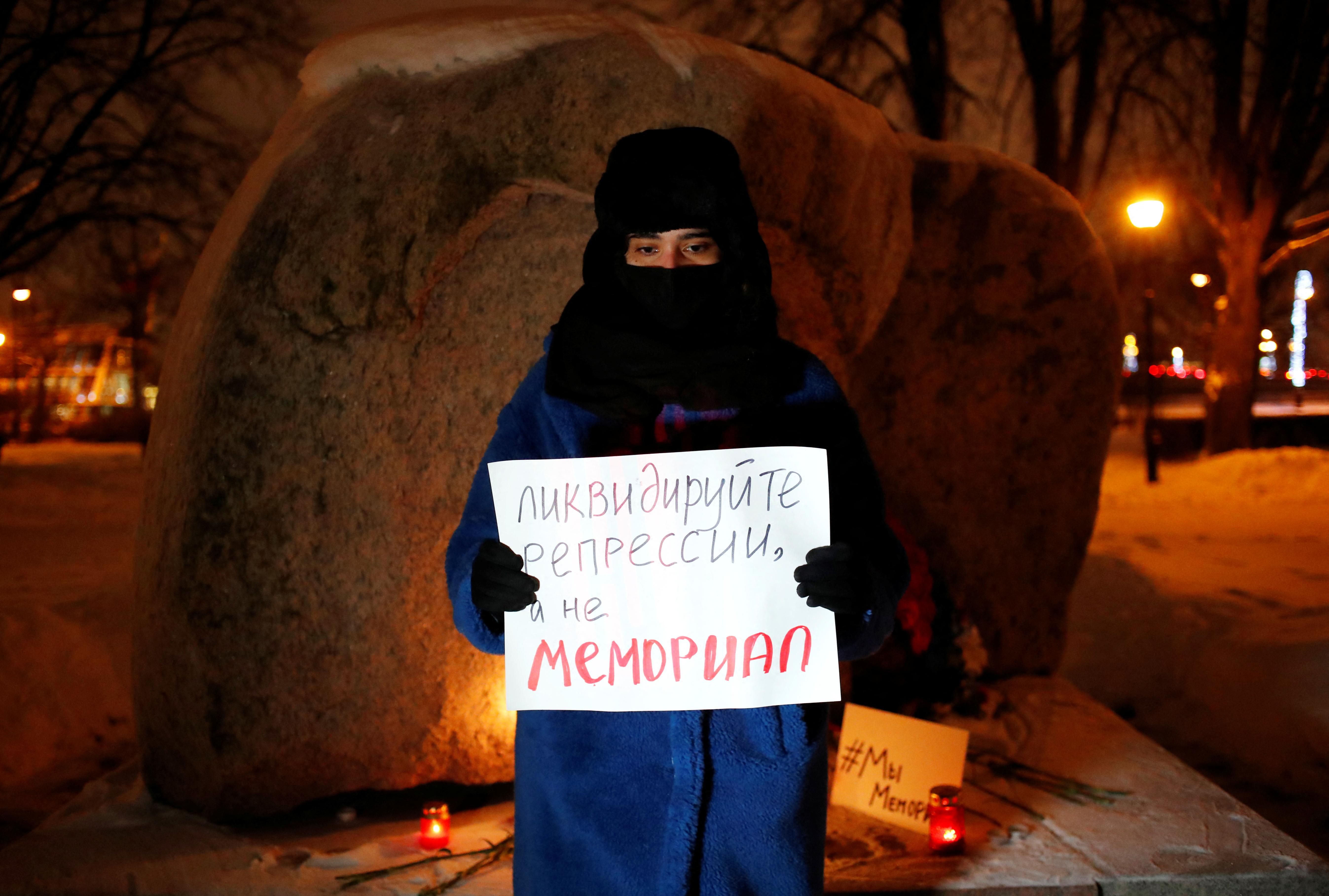Europe
December 28, 2021
Memorializing Memorial. Russia’s Supreme Court ordered the liquidation of Memorial International, one of the country’s leading human rights organizations, which for the last 30 years has chronicled abuses committed during the Soviet era, including by the KGB, President Putin’s former employer. The court said the group failed to register foreign funding under a state law that many deem unconstitutional. Meanwhile, Memorial Human Rights Center, an affiliate group that has been documenting political repression in post-Soviet Russia, now faces a separate court hearing that will determine its future. In handing down its verdict, the Supreme Court said that Memorial “creates a false image of the Soviet Union as a terrorist state,” but historians sayS the group, established in 1989, plays a crucial role in documenting what happened to millions who suffered the Gulag forced labor camps, as well as other forms of oppression. Memorial’s lawyers say they will launch an appeal, but we’re not holding our breath for an overturned verdict.
Switzerland and the EU have it out. Switzerland and Brussels have long been mired in disagreements about trade and broader economic relations. Now, things have gotten even more heated, with the European Commission warning that relations could break down unless progress can be made in negotiations – immediately. So, what do both sides want? The European Union wants the Swiss – who are not in the EU but are in the European common market – to better align their laws with the EU so that the bloc's members enjoy a level playing field in the small but wealthy Alpine country. Brussels also wants to create a dispute settlement mechanism that will help resolve shortcomings in the 100-odd bilateral agreements that govern trade between the two sides. But Switzerland says that key differences remain, including on issues like whether EU citizens should have access to Swiss social benefits, as well as what rules should govern the movement of people across borders. Bern isn’t relenting just yet, but given how much it relies on access to the EU single market, will the Swiss really continue to play hard ball for much longer?
Venezuela’s oil boom. How has heavily sanctioned PDVSA, Venezuela’s state-run oil company, managed to double its oil output in 2021 compared to last year? Caracas pulled this off in part due to help from its pal Iran, which sent much-needed chemicals that helped Venezuela to pump more of its uniquely heavy and sluggish crude oil. US sanctions make it almost impossible for Nicolas Maduro's regime to get the stuff from elsewhere. PDVSA also managed to reach deals allowing it to defer payments to the smaller contractors who help to operate its oil fields. All of this helped PDVSA reach 824,000 barrels per day in November, a 90 percent boost from the monthly average a year ago. Can the good times continue? That depends in part on Iran's continued largesse, and also on whether PDVSA is able (and willing) to pay back those rolled-over debts to its contractors. Tehran and Caracas – both international pariahs heavily-sanctioned by Washington – recently agreed on a 20-year cooperation accord to strengthen bilateral relations and help them fend off "US intervention."
More For You
World Central Kitchen staff hand out free soup in a neighbourhood that experiences electricity and heating outages following recent Russian attacks on Ukraine’s civilian infrastructure during subzero temperatures in Kyiv, Ukraine February 3, 2026.
REUTERS/Thomas Peter
1,170: The number of high-rise buildings in Kyiv that were left without heating following a barrage of Russian attacks last night on Ukraine’s capital and its energy facilities, per Kyiv Mayor Vitali Klitschko.
Most Popular
What We’re Watching: US critical minerals summit, Rafah crossing reopens, Border violence in Pakistan
Feb 02, 2026
U.S. President Donald Trump and Japanese Prime Minister Sanae Takaichi hold up signed documents regarding securing the supply of critical minerals and rare earths, at a bilateral meeting at Akasaka Palace in Tokyo, Japan, October 28, 2025.
REUTERS/Evelyn Hockstein
Representatives from the European Union, United Kingdom, Japan, and others will meet in Washington this week to discuss a strategic alliance on critical minerals.
Hard numbers: Large protests in Czechia, UAE-linked firm has large stake in the president’s company, & More
Feb 02, 2026
People take part in a rally in support of Czech President Petr Pavel, organised by Million Moments for Democracy group in reaction to dispute between President Pavel and Czech Foreign Minister and Motorists chair Petr Macinka, in Prague, Czech Republic, February 1, 2026.
REUTERS/Eva Korinkova
80,000: The number of people estimated to be in the streets of Czechia on Sunday to show their support for President Petr Pavel after he blocked the nomination of an environmental minister who performed the Nazi salute and posted Nazi memorabilia.
US President Donald Trump and musician Nicki Minaj hold hands onstage at the US Treasury Department's Trump Accounts Summit, in Washington, D.C., USA, on January 28, 2026.
REUTERS/Kevin Lamarque
The US has started handing $1,000 to the bank accounts of newborn babies. But can policies like this one help boost sagging birthrates in advanced democracies?
© 2025 GZERO Media. All Rights Reserved | A Eurasia Group media company.
